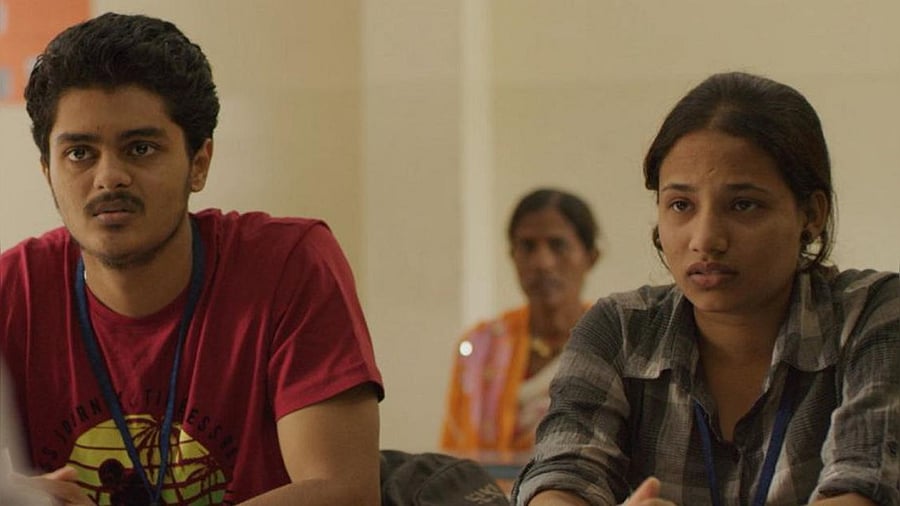

Prithvi Konanur’s Hadinelentu (Seventeeners) is a remarkable film not because of its strong central conflict but how seamlessly it delves into several topics that matter. The maker of the award-winning Pinki Elli (2020) and The Railway Children (2016) has made his most contemporary film yet and it has already made the right noise in the festival circuit.
A sex video of a Dalit girl and a Brahmin boy is leaked and it sets the plot rolling. Themes such as the caste divide, gender bias, adolescent behaviour, and the vagaries of the Indian legal system decide the course of action of the characters in this teenage drama.
Kannada cinema, for a long time, has shied away from caste but Hadinelentu holds a mirror up to society. The Dalit girl faces the threat of being denied her right to education.
Her family feels she isn’t allowed to dream big. “I have lived in a low-income neighbourhood. I am not cut off from reality,” says Prithvi, explaining how he wrote the details of two contrasting families. Characters with shades of grey makes the film more realistic.
Also Read | How can small films survive in Sandalwood?
Prithvi does wonders with the film’s writing and form. The plot has a twist at every turn and despite the controlled drama, Hadinelentu runs like a thriller.
The director spoke to Showtime about the film, which premiered at the Busan International Film Festival and was unanimously chosen as the opening film at the International Film Festival of India last year.
Excerpts:
How did the film begin? Was the famous 2004 DPS MMS scandal an inspiration?
These types of incidents would happen even in the pre-smartphone era. They happened during my engineering days back in the early 2000s, and at that time, there were no mobile phones. The increasing amount of such cases got me thinking. The basic premise was interesting.
The challenging part was to decide how to take the idea forward. What do we discuss from the core idea? That was a big question. And eventually, the film had to be original.
The film portrays the skewed balance of power in society. Is it the gender divide or the caste bias that has a larger impact on people?
I think it’s got to do more with caste and economic background than gender. Everything boils down to money. When you are underprivileged, you have nowhere to go. Talking about the impact of caste in India, once you belong to a certain group of people, the inferiority complex is deeply rooted in you. I have seen it in the US, among my African-American friends. Those who react and judge them harshly — most of them from upper caste backgrounds — do it with a mindset that’s developed subconsciously over the years. It will take years to bring an end to this imbalance.
Also Read | Rishab Shetty on life after ‘Kantara’
The film shows how the country’s legal system is far from straightforward...
What you see in the film is a major legal complication. But in general, our legal system is highly complicated even while dealing with a small case. It lacks clarity and that ruins everything. So much so that it makes you wonder who the victim is and who the oppressor is.
Tell us about the responses you have received for the film so far.
I have received different types of feedback. Some felt the Dalit girl was shown as a criminal, while others felt the Dalit girl had become the victim. They said the Brahmins are the oppressors. Yet others felt the Brahmins are the victims as they face the brunt of the SC/ST Act. I feel good that my film is open to interpretations. When you have different perspectives, it means you have done the job of a filmmaker.
The film is gripping with plenty of surprises yet the drama is low-key. It offers a unique experience...
I could have brought in more drama but as a filmmaker, you are afraid that you will lose control. I don’t have a problem with melodrama. When you do it properly, it works. We have cut elements we felt were melodramatic or portions in which the actors went overboard. Also, we need time to get more dramatic yet natural performances from newcomers. It’s a different ball game with seasoned actors.
